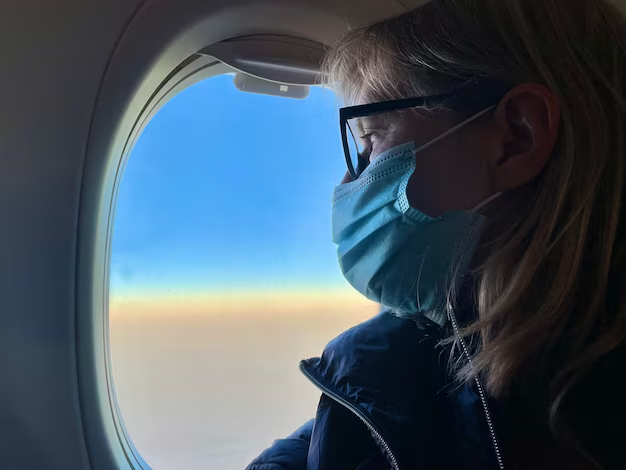Your Guide to How Long After Cataract Surgery Can You Fly
What You Get:
Free Guide
Free, helpful information about Cataract FAQ and related How Long After Cataract Surgery Can You Fly topics.
Helpful Information
Get clear and easy-to-understand details about How Long After Cataract Surgery Can You Fly topics and resources.
Personalized Offers
Answer a few optional questions to receive offers or information related to Cataract FAQ. The survey is optional and not required to access your free guide.
How Soon Can You Fly After Cataract Surgery? A Comprehensive Guide
Imagine having cataract surgery to restore the clarity of your sight, only to immediately plan an exciting trip to enjoy your new vision. But wait, how soon can you actually board a flight after such a procedure? Flying after cataract surgery is a common concern due to changes in air pressure and the need for post-operative care. In this article, we'll delve into this topic to ensure you have all the information you need for a smooth recovery and safe travels. ✈️
Understanding Cataract Surgery and Recovery
Cataract surgery is a procedure designed to remove the clouded lens of your eye, replacing it with a clear artificial lens to restore vision. As one of the most common surgeries performed, it usually has a quick recovery time.
The Surgical Process
During cataract surgery:
- A small incision is made in the eye.
- The clouded lens is emulsified and removed.
- An artificial lens, known as an intraocular lens (IOL), is implanted.
The procedure typically takes less than an hour, and patients often experience improved vision almost immediately.
Typical Recovery Timeline
After the surgery, your eye begins to heal. Most patients:
- Experience slight discomfort, which diminishes within a few days.
- Notice stabilization of vision within a few weeks.
- Have routine follow-up visits to monitor healing.
Key Takeaway: While recovery is generally quick, each individual’s healing process might vary, and careful adherence to post-operative instructions is crucial.
Flying After Cataract Surgery: Key Considerations
The question of when you can safely fly after cataract surgery involves assessing potential risks and following medical guidance.
Changes in Air Pressure
Airplanes maintain cabin pressure equivalent to an altitude between 6,000 and 8,000 feet. Rapid pressure changes can potentially affect the eyes:
- Increased Risk of Inflammation: Swelling post-surgery might be aggravated by pressure changes.
- Potential for Dry Eyes: The dry cabin air might cause discomfort, especially for eyes in recovery.
General Guidelines
Many healthcare professionals suggest:
- Waiting at least 1 to 2 weeks post-surgery before flying to allow primary healing and follow-up checks.
- Ensuring your surgeon's approval, particularly if complications arose during the surgery.
Practical Tip: Always wear protective eyewear and keep lubricating eye drops handy during flights to manage any dryness.
Expert Recommendations on Flying After Surgery
While each surgeon might have specific post-operative instructions based on individual circumstances, there are generally accepted best practices for flying post-surgery.
Follow-up Appointments
Ensuring you're healing well is crucial before embarking on air travel:
- First week: Have a post-operative check-up to assess healing.
- Beyond first week: Obtain clearance based on check-up results.
Pre-Flight Preparation
Once you receive the go-ahead to fly:
- Pack a travel kit that includes prescribed medications, sunglasses, and eye drops.
- Inform the airline of any medical conditions for possible accommodations.
In-Flight Tips
To ensure comfort and safety during your flight:
- Stay hydrated: Drink plenty of water to combat dry cabin air.
- Blink more frequently or use lubricating drops regularly to prevent dry eyes.
- Limit screen time to reduce eye strain.
Addressing Related Concerns and FAQs
Questions abound when it comes to cataract surgery and flying. Here, we address common concerns that patients might have.
Is Post-Surgery Swelling a Concern on Flights?
Yes, post-operative swelling could be affected by flying due to cabin pressure. However, the likelihood reduces significantly after the eyes have healed during the initial recovery period.
What About Flying Long Distances?
Long-haul flights may require extra precautions:
- Plan Layovers: Breaking up long journeys can reduce stress on your eyes.
- Comfort Measures: Use travel pillows and sleep masks for extended rest.
Should I Avoid Certain Activities During Recovery?
Aside from flying, patients are generally advised to:
- Refrain from heavy lifting to prevent increased eye pressure.
- Avoid swimming to limit infection risk.
Summary Tips:
- 🗓 Wait at least 1-2 weeks and get surgeon approval before flying.
- 🏥 Attend follow-up checks to ensure proper healing.
- 💧 Keep eyes hydrated and avoid dry cabin air by using drops.
- 🥽 Always wear sunglasses to protect from bright light exposure.
Final Thoughts: Ensuring a Smooth Recovery and Safe Travels
Cataract surgery offers a remarkable improvement in quality of life, and with the right precautions, flying after the procedure can be safe and enjoyable. The importance of consulting with your healthcare provider cannot be overstated, as they offer personalized guidance tailored to your recovery journey. By following general recommendations and listening to your body, you can both see the world clearly and explore it safely. 🌟
What You Get:
Free Cataract FAQ Guide
Free, helpful information about How Long After Cataract Surgery Can You Fly and related resources.

Helpful Information
Get clear, easy-to-understand details about How Long After Cataract Surgery Can You Fly topics.

Optional Personalized Offers
Answer a few optional questions to see offers or information related to Cataract FAQ. Participation is not required to get your free guide.


